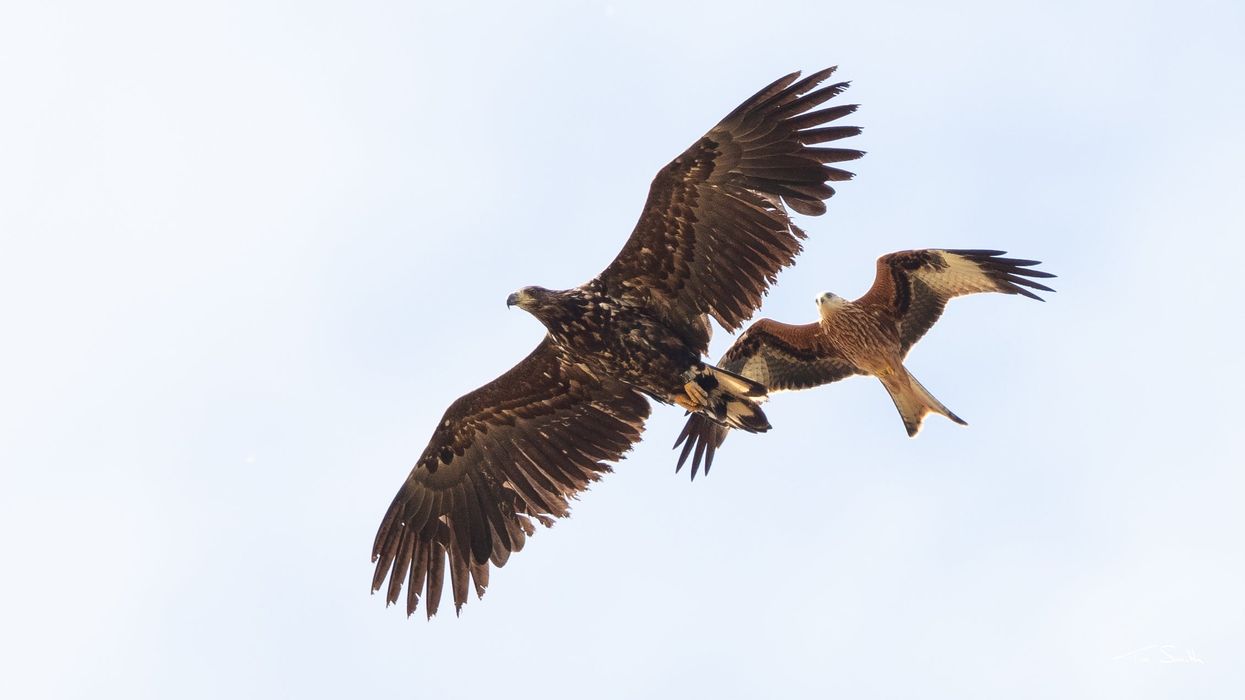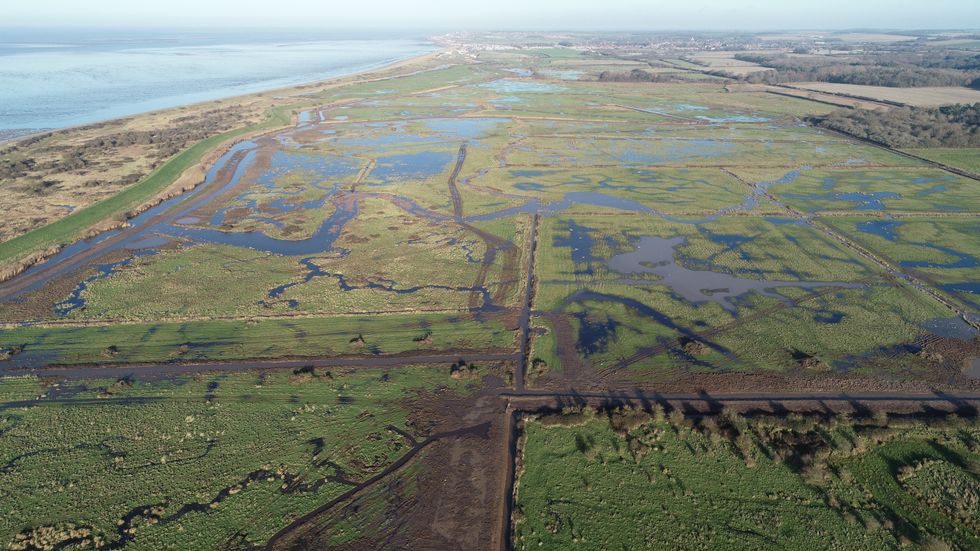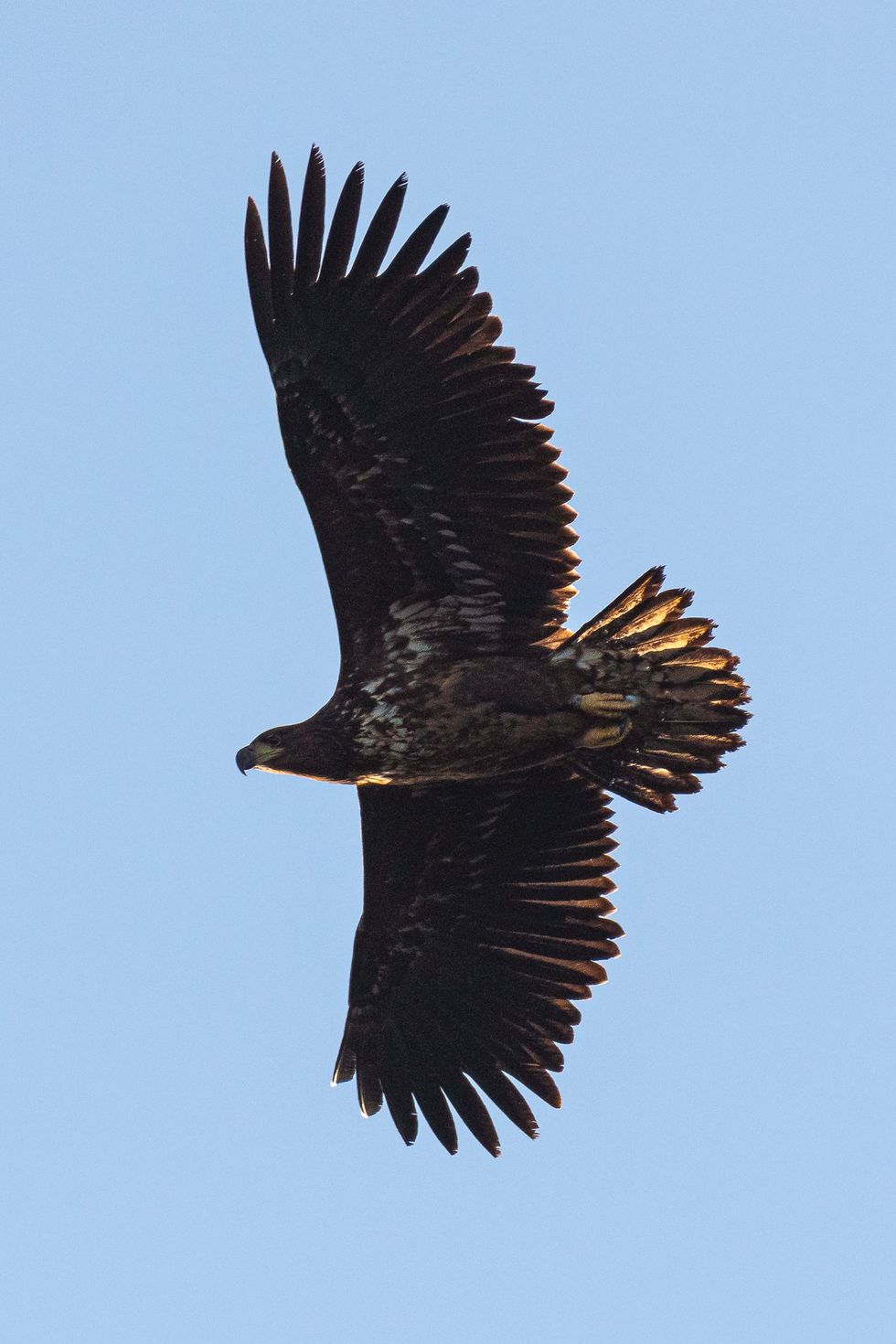
White-tailed eagles are to be reintroduced to Norfolk in the latest efforts to bring back the birds nicknamed “flying barndoors” to England it has been announced.
Government conservation agency Natural England has given the go-ahead for a scheme to release up to 60 juvenile white-tailed eagles over 10 years at Wild Ken Hill in west Norfolk, the team behind the project have said.
The huge birds of prey, whose wing span of up to 8ft (2.4m) gives them their nickname, became extinct in Britain by the early 20th century due to persecution.
They were reintroduced to Scotland from the 1970s, with the first reintroduction in England, where the species was once widespread in southern and eastern areas, taking place on the Isle of Wight in 2019, and the young birds ranging widely since.
The reintroduction of young birds to west Norfolk is the next stage in bringing back Britain’s biggest bird of prey.
A licence has been granted to conservation organisation the Roy Dennis Wildlife Foundation, and Wild Ken Hill, a rewilding, conservation and sustainable farming project on the west Norfolk coast, for the scheme.
The team said they were given the go-ahead after a detailed feasibility study and a public consultation which showed high public support, with 91% backing the scheme, and 63% of farmers indicating support for the proposals.
Concerns have been raised in the past about the impact on livestock such as lambs from the birds, which are also known as sea eagles and largely feed on fish as well as various birds, rabbits, hares and carrion.
The team said no issues with conservation sites or farms have been recorded with any of the 13 birds released on the Isle of Wight, in a scheme being run by the Roy Dennis Wildlife Foundation and Forestry England.
We are delighted to have the go-ahead to bring back white-tailed eagles to eastern England
Dominic Buscall, Wild Ken HillThe young birds being released in west Norfolk will be translocated from a healthy population in Poland.
As a result of the current Covid-19 situation’s impact on international travel, the first birds are likely to be introduced in 2022.
Dominic Buscall, manager at Wild Ken Hill, said: “We are delighted to have the go-ahead to bring back white-tailed eagles to eastern England, and overwhelmed by the support we have received from all sectors.
“We have also carefully been listening to concerns where they have arisen, and we are now committed to delivering this important conservation project and working with all of our stakeholders to ensure its success.”
Six of the birds released on the Isle of Wight have spent time in Norfolk in the past year, but conservationists say it would take a long time for the species to increase its population and recolonise East Anglia without help.
The aim is to establish a small breeding population of about six to 10 pairs, which will take some time to become established as white-tailed eagles do not usually breed until they are five years old, the conservationists said.
Roy Dennis said: “The breeding biology of white-tailed eagles means that although young birds range extensively in their early years, they usually return to their natal area to breed.
“However, if, in the future, young birds from other populations encounter a small breeding population of white-tailed eagles in East Anglia, they may be encouraged to stay.”
Dave Slater, director for wildlife licensing at Natural England, said: “Our experts have carefully assessed the project against guidelines for the reintroduction of species, as well as the potential environmental, social and economic impacts.
“And we are satisfied that there are no significant risks associated with it.
“We’re content that the applicants’ experience, as well as our expertise and licensing process, ensures the project will be carried out in a responsible, well-managed way that takes account of concerns and makes a positive contribution to both people and wildlife.”















